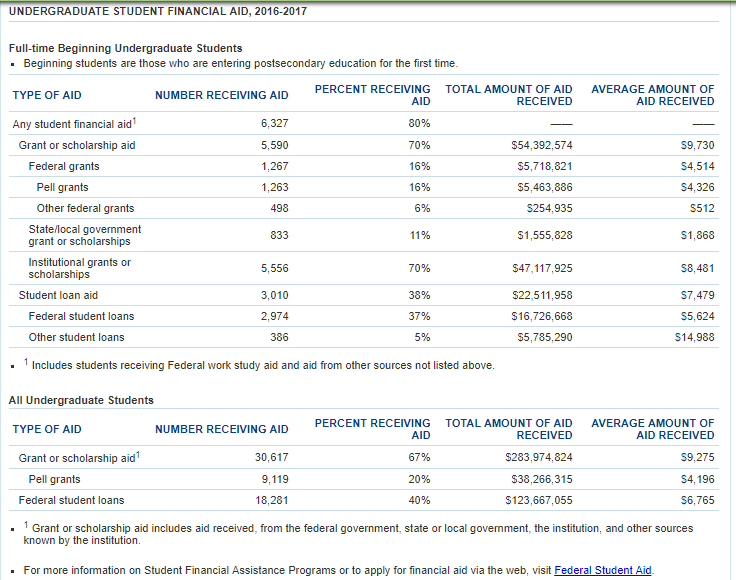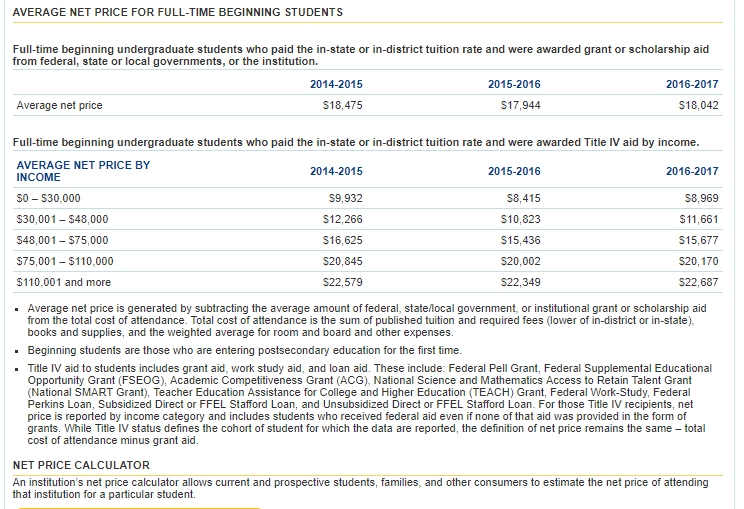If receiving financial aid is the key to attending college, you might want to look at your college’s financial aid footprint. Every college reports the statistics related to their financial aid profile. These statistics can tell you how generous they are with their scholarships and grants and also the percentage of students who receive help with their tuition. It will also help you determine if you should ask for more merit aid when you receive your financial aid package. If a college is not generous with aid and your student receives some, it’s unlikely they will award more.
The best resource available for these statistics is College Navigator. You can enter the name of the college, or search using criteria such as location, size, and degree plans. Once you’ve pulled up the data, you can use it to compare colleges.
Below is a screenshot of just one university, Ohio State:
As you can see, 67% of the full-time beginning undergraduate students receive aid in the form of grants or scholarships; 70% of that aid is from institution grants and scholarships. Also notable, the average amount of aid received in the form of grants or scholarships per student is $9,275. Total tuition/room and board is $27,037 for in-state, on campus students. Therefore, 1/3 of tuition, room and board is covered in the form of grants and scholarships.
covered in the form of grants or scholarships.
Another valuable part of the information available includes the average net price broken down by household income:
All of this information will help you determine a college’s financial aid footprint and give you the much-needed data you will need to make the wisest financial choice. Finding the college with the best financial aid is part of finding that perfect fit college.
In addition, you can connect with the College Affordability and Transparency Center provided by the federal government to determine which colleges are the highest and lowest priced and which offer the best value.




